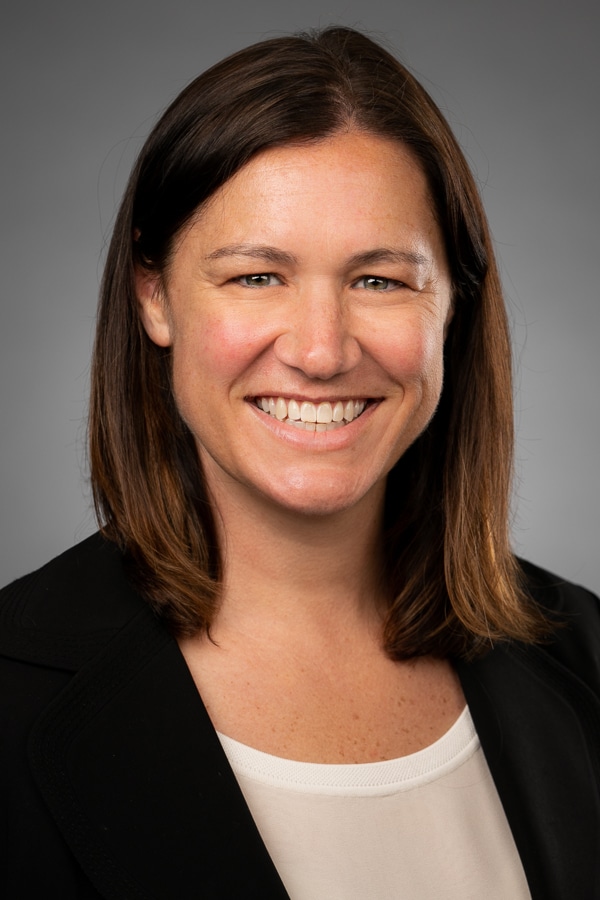All 50 states govern lawyer advertising through their Rules of Professional Conduct, often known as “ethics rules.” The rules in each state are unique to that state. Therefore, it is imperative that lawyers familiarize themselves with the rules of the states that govern their conduct.
Rule 7.1 – Communication Concerning a Lawyer’s Services
A lawyer shall not make a false or misleading communication about the lawyer or the lawyer’s services. A communication is false or misleading if it contains a material misrepresentation of fact or law, or omits a fact necessary to make the statement considered as a whole not materially misleading.
Comparison to Oregon Code
The rule retains the essential prohibition against false or misleading communications, but not the specifically enumerated types of communications deemed misleading.
Comparison to ABA Model Rule
This is the ABA Model Rule.
RULE 7.2 ADVERTISING
(a) Subject to the requirements of Rules 7.1 and 7.3, a lawyer may advertise services through written, recorded or electronic communication, including public media.
(b) A lawyer shall not give anything of value to a person for recommending the lawyer’s services except that a lawyer may
(1) pay the reasonable costs of advertisements or communications permitted by this Rule;
(2) pay the usual charges of a legal service plan or a lawyer referral service;
(3) pay for a law practice in accordance with Rule 1.17; and
(4) give nominal gifts as an expression of appreciation that are neither intended nor reasonably expected to be a form of compensation for recommending a lawyer’s services.
(c) Any communication made pursuant to this rule shall include the name and contact information of at least one lawyer or law firm responsible for its content.
Comparison to Oregon Code This rule retains DR 2-103’s permission for advertising in various media, provided the communications are not false or misleading and do not involve improper in person contact. It retains the prohibition against paying another to recommend or secure employment, with the exception of a legal service plan or not-for-profit lawyer referral service. The rule also continues the requirement that communications contain the name and office address of the lawyer or firm.
Rule 7.3 – Solicitation of Clients
A lawyer shall not solicit professional employment by any means when:
(a) the lawyer knows or reasonably should know that the physical, emotional or mental state of the subject of the solicitation is such that the person could not exercise reasonable judgment in employing a lawyer;
(b) the person who is the subject of the solicitation has made known to the lawyer a desire not to be solicited by the lawyer; or
(c) the solicitation involves coercion, duress or harassment.
Comparison to Oregon Code
This rule incorporates elements of DR 2-101(D) and (H) and DR 2-104.
Comparison to ABA Model Rule
This rule closely mirrors the Model Rule, although the MR has no counterpart to paragraph (b)(1).
Rule 7.5 – Firm Names and Letterheads
(a) A lawyer shall not use a firm name, letterhead or other professional designation that violates Rule 7.1. A trade name may be used by a lawyer in private practice if it does not imply a connection with a government agency or with a public or charitable legal services organization and is not otherwise in violation of Rule 7.1.
(b) A law firm with offices in more than one jurisdiction may use the same name or other professional designation in each jurisdiction, but identification of the lawyers in an office of the firm shall indicate the jurisdictional limitations on those not licensed to practice in the jurisdiction where the office is located.
(c) The name of a lawyer holding a public office shall not be used in the name of a law firm, or in communications on its behalf, during any substantial period in which the lawyer is not actively and regularly practicing with the firm.
(d) Lawyers may state or imply that they practice in a partnership or other organization only when that is a fact.
(e) A lawyer may be designated “Of Counsel” on a letterhead if the lawyer has a continuing professional relationship with a lawyer or law firm, other than as partner or associate. A lawyer may be designated as “General Counsel” or by a similar professional reference on stationery of a client if the lawyer of the lawyer’s firm devotes a substantial amount of professional time in the representation of the client.
Comparison to Oregon Code
This rule retains much of the essential content of DR 2102.
Comparison to ABA Model Rule
This is the Model Rule.
Rule 1.6 – Confidentiality of Information
(a) A lawyer shall not reveal information relating to the representation of a client unless the client gives informed consent, the disclosure is impliedly authorized in order to carry out the representation or the disclosure is permitted by paragraph (b).
(b) A lawyer may reveal information relating to the representation of a client to the extent the lawyer reasonably believes necessary:
(1) to disclose the intention of the lawyer’s client to commit a crime and the information necessary to prevent the crime;
(2) to prevent reasonably certain death or substantial bodily harm;
(3) to secure legal advice about the lawyer’s compliance with these Rules;
(4) to establish a claim or defense on behalf of the lawyer in a controversy between the lawyer and the client, to establish a defense to a criminal charge or civil claim against the lawyer based upon conduct in which the client was involved, or to respond to allegations in any proceeding concerning the lawyer’s representation of the client;
(5) to comply with other law, court order, or as permitted by these Rules; or
(6) in connection with the sale of a law practice under Rule 1.17 or to detect and resolve conflicts of interest arising from the lawyer’s change of employment or from changes in the composition or ownership of a firm. In those circumstances, a lawyer may disclose with respect to each affected client the client’s identity, the identities of any adverse parties, the nature and extent of the legal services involved, and fee and payment information, but only if the information revealed would not compromise the attorney-client privilege or otherwise prejudice any of the clients. The lawyer or lawyers receiving the information shall have the same responsibilities as the disclosing lawyer to preserve the information regardless of the outcome of the contemplated transaction.
(7) to comply with the terms of a diversion agreement, probation, conditional reinstatement or conditional admission pursuant to BR 2.10, BR 6.2, BR 8.7or Rule for Admission Rule 6.15. A lawyer serving as a monitor of another lawyer on diversion, probation, conditional reinstatement or conditional admission shall have the same responsibilities as the monitored lawyer to preserve information relating to the representation of the monitored lawyer’s clients, except to the extent reasonably necessary to carry out the monitoring lawyer’s responsibilities under the terms of the diversion, probation, conditional reinstatement or conditional admission and in any proceeding relating thereto.
(c) A lawyer shall make reasonable efforts to prevent the inadvertent or unauthorized disclosure of, or unauthorized access to, information relating to the representation of a client.
Comparison to Oregon Code
This rule replaces DR 4-101(A) through (C). The most significant difference is the substitution of “information relating to the representation of a client” for “confidences and secrets.” Paragraph (a) includes the exceptions for client consent found in DR 4-101(C)(1) and allows disclosures “impliedly authorized” to carry out the representation, which is similar to the exception in DR 4101(C)(2). The exceptions to the duty of confidentiality set forth in paragraph (b) incorporate those found in DR 4-101(C)(2) through (C)(5). There are also two new exceptions not found in the Oregon Code: disclosures to prevent “reasonably certain death or substantial bodily harm” whether or not the action is a crime, and disclosures to obtain legal advice about compliance with the Rules of Professional Conduct. Paragraph (b)(6) in the Oregon Code pertained only to the sale of a law practice. Paragraph (b)(7) had no counterpart in the Oregon Code.
Comparison to ABA Model Rule
ABA Model Rule 1.6(b) allows disclosure “to prevent reasonably certain death or substantial bodily harm” regardless of whether a crime is involved. It also allows disclosure to prevent the client from committing a crime or fraud that will result in significant financial injury or to rectify such conduct in which the lawyer’s services have been used. There is no counterpart in the Model Rule for information to monitoring responsibilities.
*This information is provided as a convenience to the viewers of this material. Viewers should conduct their own research or rely on the advice of a lawyer before relying on the information here.






